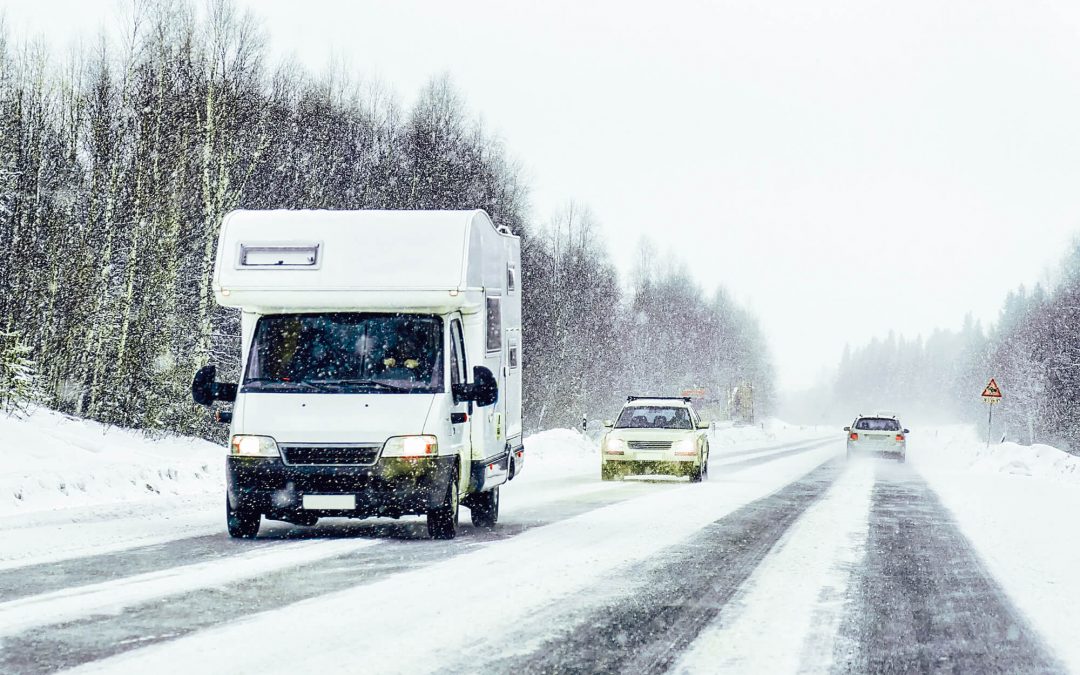Some RV owners use their RVs year-round. While RVing in the winter comes with more challenges than at other times of the year, it can still be fun with the right preparation. Avoid mishaps and emergencies by following these winter RV tips.
Check the Weather Forecast Before RVing in the Winter
While the weather might be mild throughout most of the winter, there is always the potential for snow and ice storms. Fortunately, there is usually a warning about the forecast at least a few days in advance of these storms.
If you are planning an RV trip, keep an eye on the 10-day weather forecast leading up to it. If dangerous severe weather is predicted along with warnings to stay off the roads, postpone your trip and prepare your RV at home to use as a resource if you lose power.
Plan Alternate Routes
If you are on a long-term RV road trip during winter, you might experience a winter storm while you are far from home. In this case, your route may become impassable and you’ll need to go a different way. Get familiar with the area you are in and plan an alternate route that may allow for safer travel.
Snow Chains for Tires
When RVing in the winter, bring chains for the tires in case you run into snow and ice. Snow chains provide traction for the tires to prevent them from slipping or getting stuck in dangerous conditions. Don’t leave chains on the tires all winter long. Just add them when it snows and remove them once the snow melts.
Staying Warm While RVing in the Winter
Keep your RV warm while traveling in the winter by insulating the doors and windows with draft snakes and thermal drapes. Inspect and test the RV furnace before going on your winter trip to make sure it is in good working condition.
Insulate Pipes
Just like at home, your plumbing pipes can freeze in low temperatures. Insulate them with foam pipe insulation to prevent them from bursting when the temperature drops.
Stock the RV with Emergency Supplies
Even if you take precautions, there is still a chance that you may get stuck in your RV during winter weather. Have an emergency kit with bottled water, emergency blankets, non-perishable food, battery-powered lights, batteries, jumper cables, and a first aid kit. Hopefully, you won’t have to use it, but in a predicament, you will be glad to have it in your RV.
RV Onsite Services provides RV inspections to the NC Triangle area. Contact us before your winter road trip.

